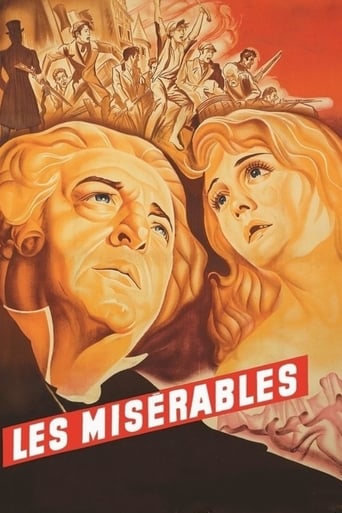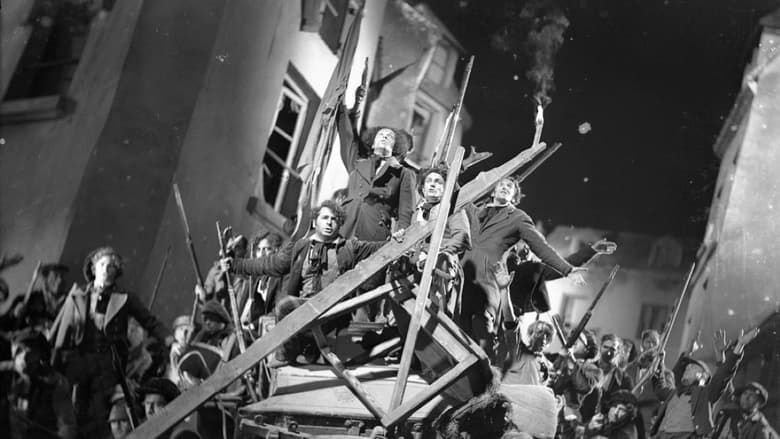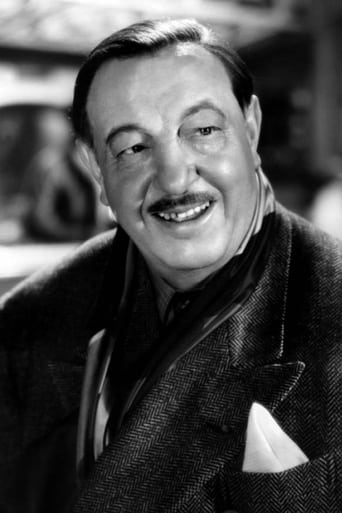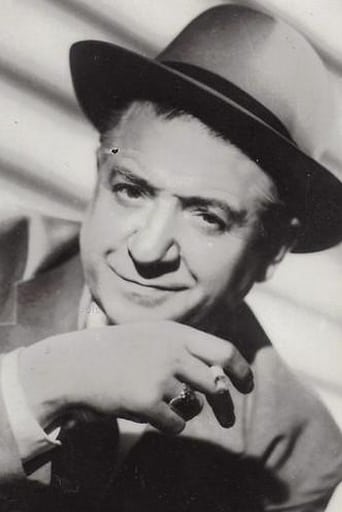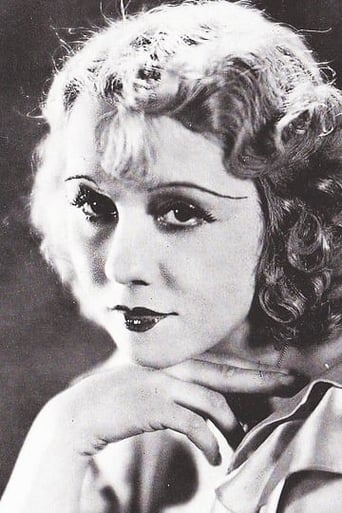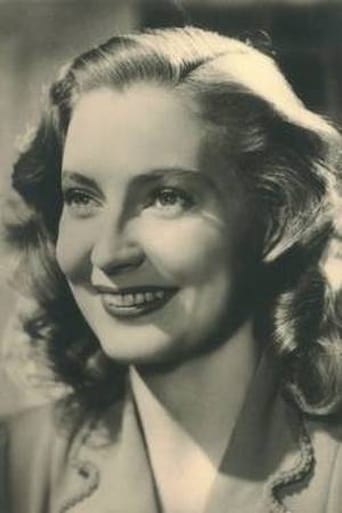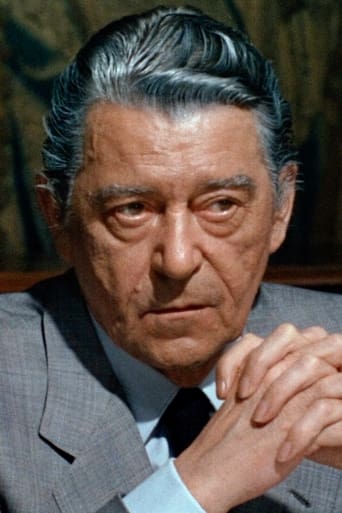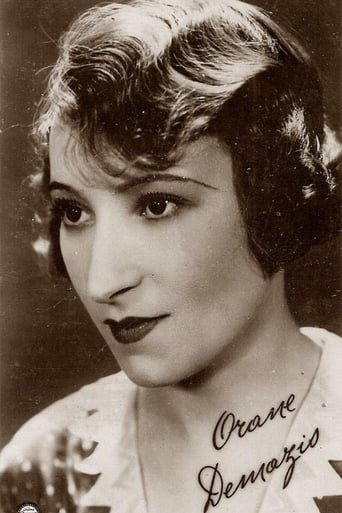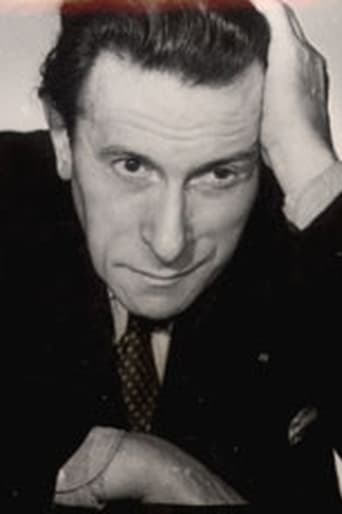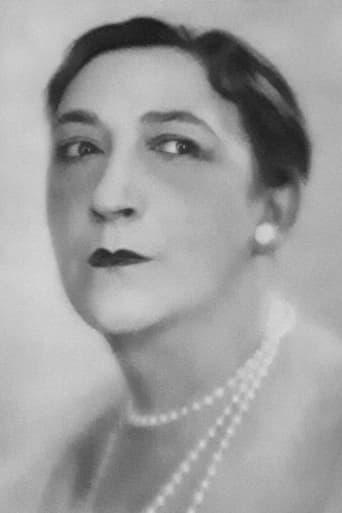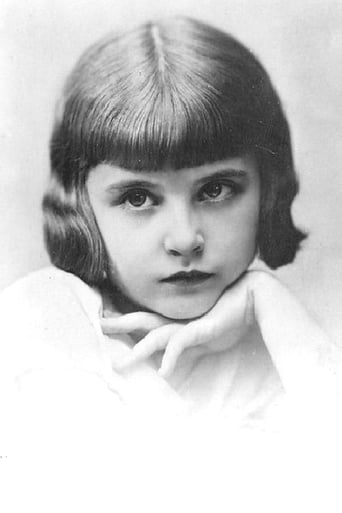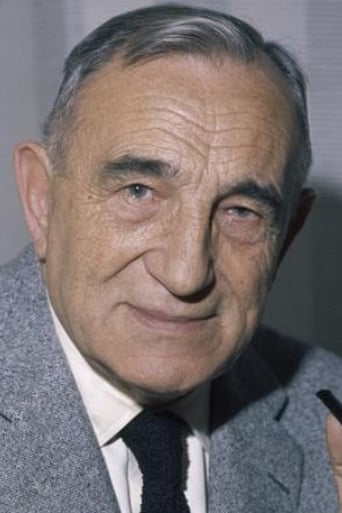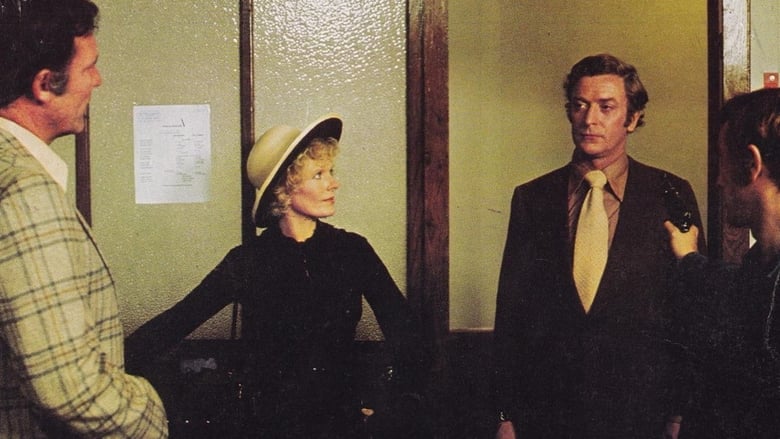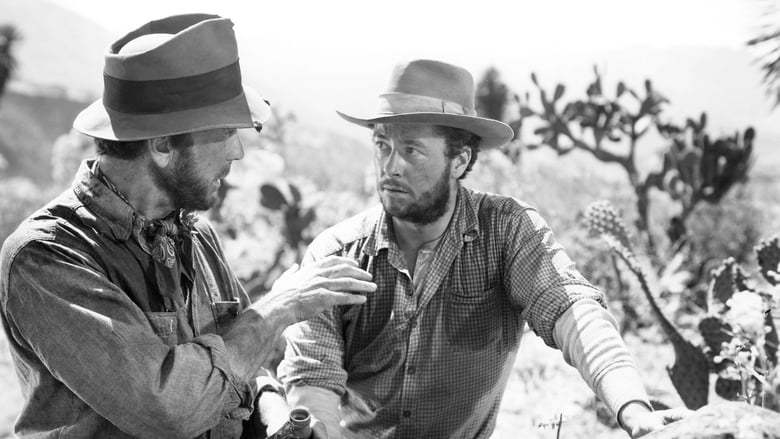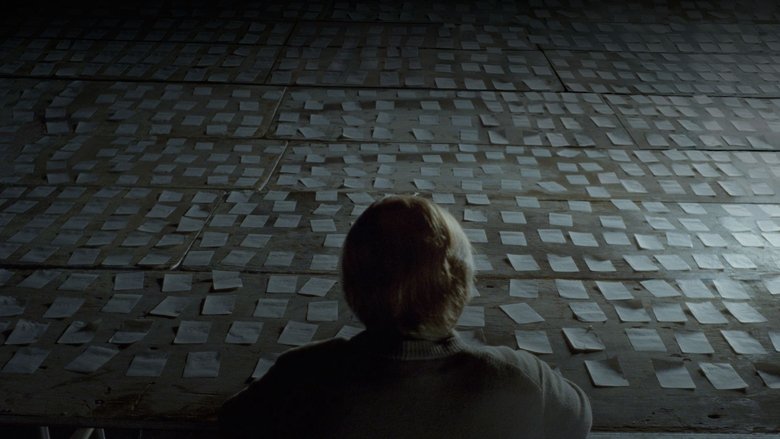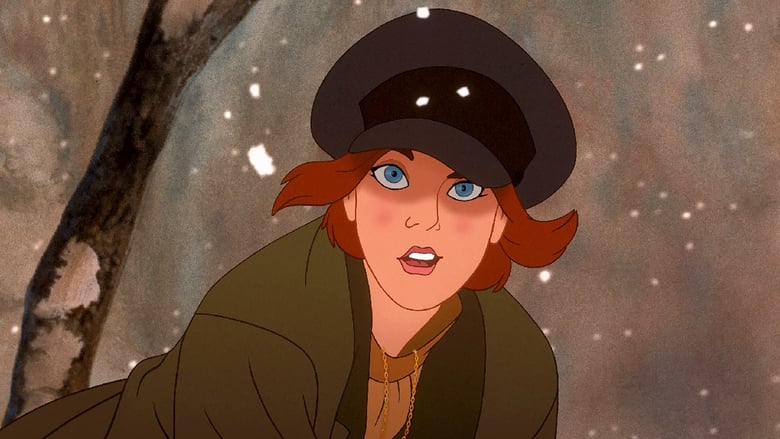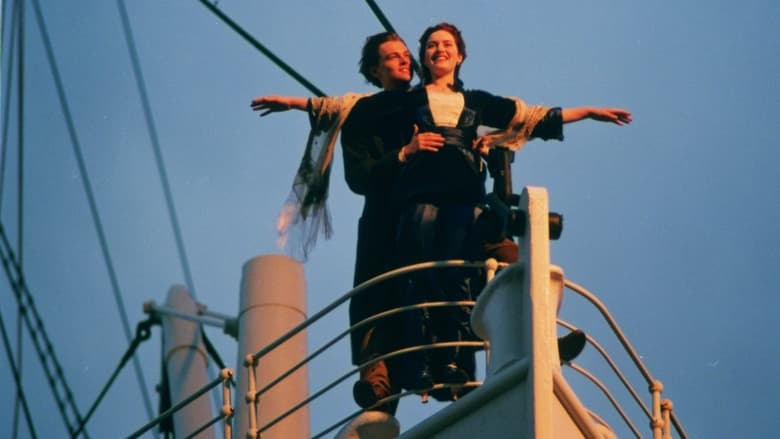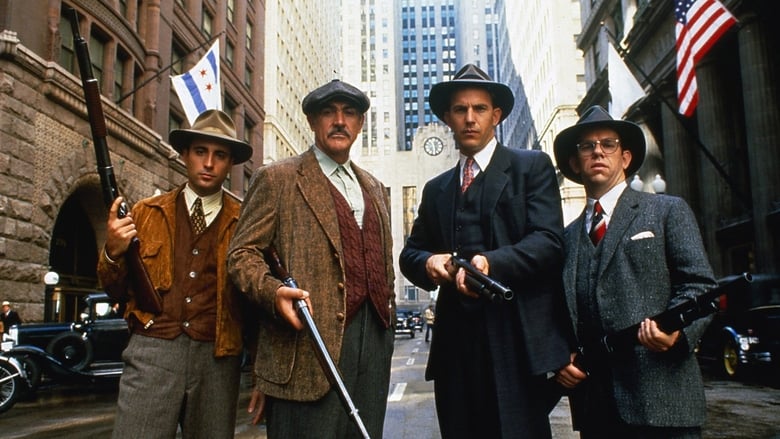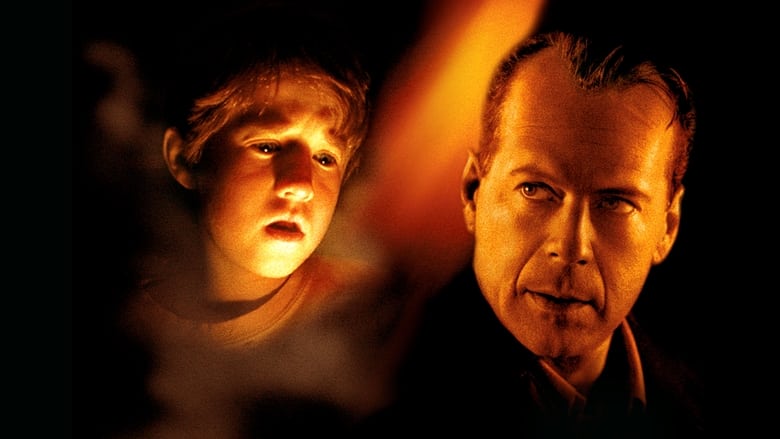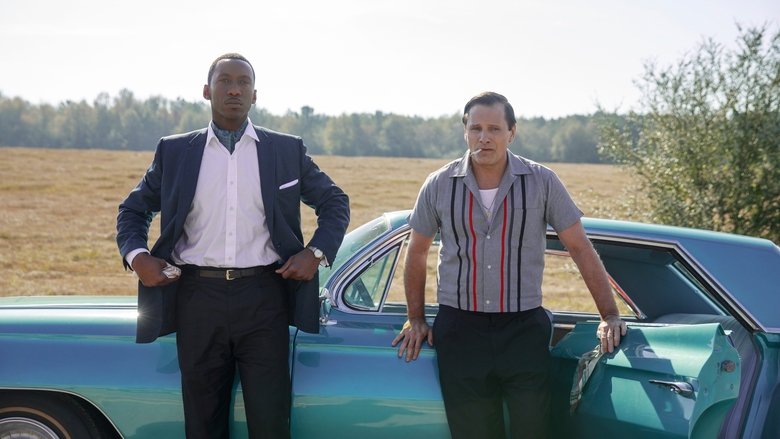In 19th century France, Jean Valjean, a man imprisoned for stealing bread, must flee a relentless policeman named Javert. The pursuit consumes both men's lives, and soon Valjean finds himself in the midst of the student revolutions in France.


Similar titles
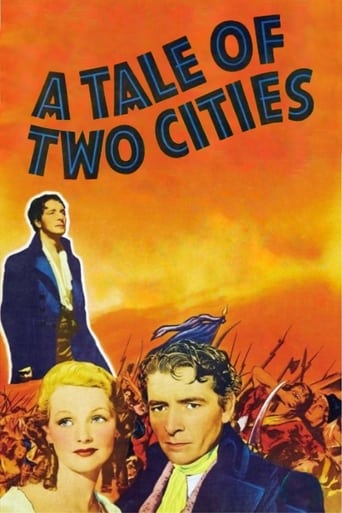
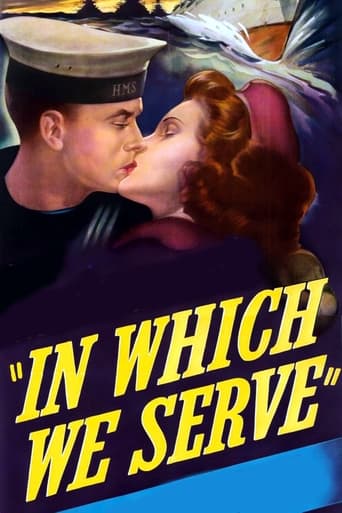
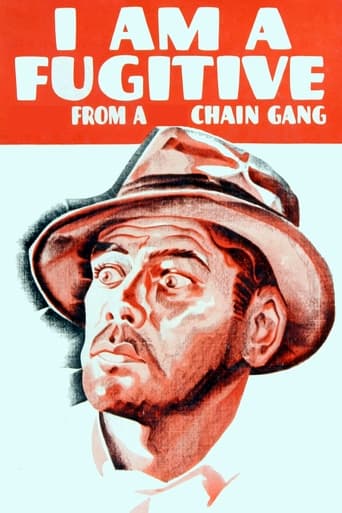
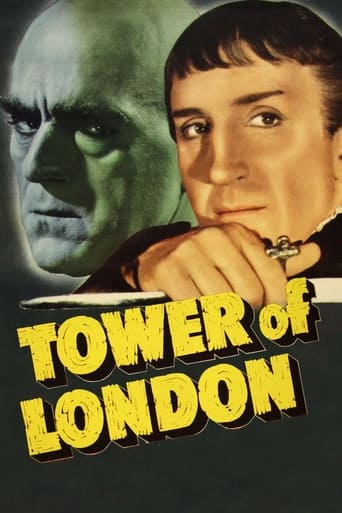
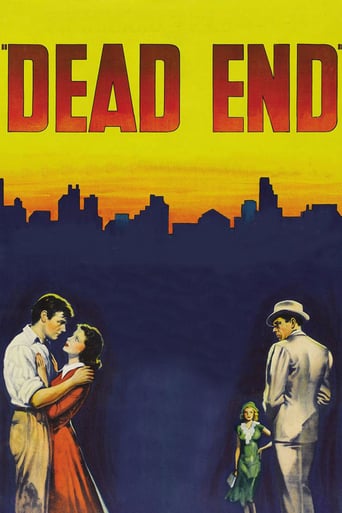
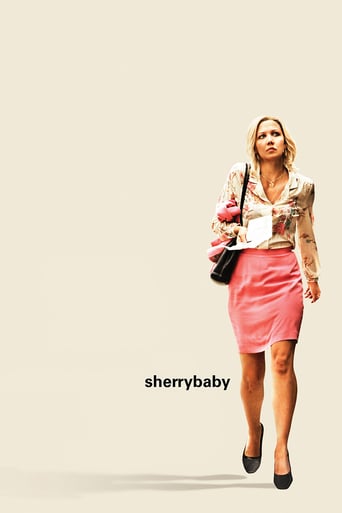
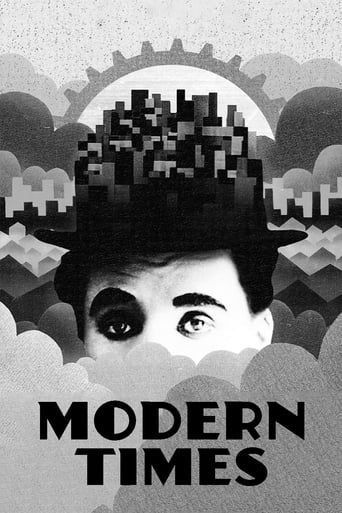
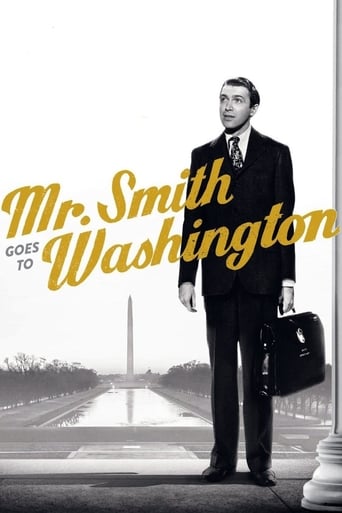
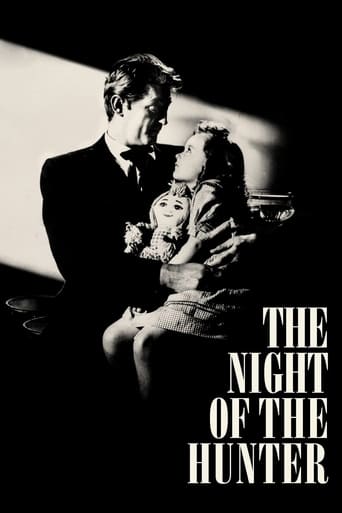

Reviews
Don't let the long length deter you, the story is such a big one that is very rich in detail and does need over 2 hours at least to tell it. This film is not just very faithful to it, the most faithful out of all the adaptations, but tells it absolutely thrillingly and with great emotion too. You are drawn into Hugo's world and in the time of the Revolution and along with the 1978 adaptation this is the version with the best characterisation(Valjean has never been this well-realised on film). While Javert is not as prominent as other adaptations his scenes do have tension and there is the feeling of he and Valjean being polar opposites as well as mirror images of one another, the sewer chase is thrilling, Valjean and Cosette's father-daughter relationship has never been more charming, the Revolution scenes have a real emotional intensity and immediacy that has been unparalleled on film and the romance is not shallow nor does it feature too much. In fact all the character relationships are explored beautifully and don't out-balance one another, one will argue that the rest of the characters pale next to Valjean here, I don't agree I think they are all convincing and it's mainly because Harry Baur's performance is so good that there may be that feeling. But it's not just how well it scores adaptation-wise that makes Les Miserables(1934) the best version of the book and one of the best of its decade but how it works so well as a film. There are more lavish and authentic adaptations of the book(1935, 1998) but that says very little because the costumes and sets are still beautifully rendered here and the Expressionistic style the photography and lighting adopt are equally striking. Arthur Honnegar's music score adds much to the atmosphere too, it is sweeping and grand yet emotional and subtly haunting too. The film is brilliantly written and treats the story and Hugo's prose like it knows that it's a classic(and Les Miserables is). The story doesn't run out of steam, allows time for things to develop and never feels too rushed or too structurally thin. And as said early on in the review what is so powerful in the book is translated every bit as powerfully here, and you can tell that everybody connected with their roles and what they're going through, kind of like it's affecting them in a personal way. Of the performances, the best by far is Harry Baur, that he is the only actor as Valjean to properly fit the role physically(Gerard Depardieu in the 2000 mini-series comes close but not close enough) is one part of the allure but every better is that he gives a towering and in this viewer's mind definitive performance in the role, noble, emotive, tragic, charismatic, initially immoral and later redemptive. Charles Vanel is a very icy and ruthless Javert, one person you wouldn't want to cross paths with and there is a tense dynamic between the two and that Javert is very strongly principled. The only thing that has been done slightly better in other adaptations is Javert having a more vulnerable side. All the performances are fine, Fantine is deeply affecting and Cosette and Marius are the least bland their characters have often been since, the only reservation is Eponine being too old(and we're not talking a bit here) but she still is written and portrayed very convincingly so it isn't too much of a hindrance. And of course Raymond Bernard's direction is superb. Overall, a magnificent film, both as an adaptation- the best film adaptation of Les Miserables by a mile- and as a film in general. 10/10 Bethany Cox
Les misérables (1934) **** (out of 4)There have been countless versions of Victor Hugo's novel but it's hard to imagine one as special as this French epic clocking in just under five-hours. The story is pretty familiar has convict Jean Valjean (Harry Baur) is released from prison after serving a total of nineteen years for stealing a loaf of breed. Once released his given a second chance by a priest and decides to turn his life around and live for good things but the ruthless Inspector Javert (Charles Vanel) refuses to let him be. There are certainly some flaws in this film, which might cause many to drop the four stars down a bit but the superb performance by Baur and the remarkable story were enough to make this a must-see for all film buffs as it's certainly one of the most impressive epics of its day.I think what really makes this film so special is the performance by Baur who really turns in a remarkable performance that is easily one of the most memorable of the decade. There have been many great actors to play the role of Valjean but Baur has the perfect look for the part. When we first see him as he's being released from prison he has the look of a man who has spent nearly twenty-years in hard labor. When he's playing the Mayor you can't help but really see him as that man and when the character changes once again towards the end of the picture you can't help but believe him here as well. The character development in this story is a remarkable one and Baur captures every twist and turn and really does the character a lot of justice. It's hard to imagine anyone else doing better and that's saying quite a bit as many great actors, including Fredric March a year later, played the part. I think the greatness of Baur leads to one of the film's weaknesses and that is the supporting cast as none of them come close to his emotion or power. The supporting performances are all good but at the same time they're all smashed by Baur. It's hard to make heads or tails of Vanel as, to my surprise, the Javert character is pretty much underwritten and takes a backseat for the majority of the film. I was surprised that his cat-and-mouse chase of Valjean was cut back so much and that his obsession with catching the convict wasn't made more of a focus.Running just under five hours the film was broken down into three parts. I think the first is the most powerful followed by the second and then the final chapter. The third part of the film deals with the French Revolution and I think it spends a bit too much time on the fighting as this takes away from the Valjean story. With that said, the battle sequences are magnificently filmed and contains some terrific camera-work. When the first battle breaks out it looks as if someone is using a hand-held camera that really puts you in the middle of all the action. The battle scenes have a very realistic look at them and one can certainly see the influence that they would have on future films. Another major aspect to the story is that there are so many details that are left out of other versions. Considering the running time, it really goes without saying that you can focus in on many of the supporting characters and give them a lot more to do here. This was the third version that I've seen this year and I was surprised to see that the Valjean-Vanel relationship stays pretty much the same while it's the supporting players that really get expanded. I found the 1935 version with March and Charles Laughton to be a terrific entertainment and on a pure entertainment level I might call it the best. In terms of filmmaking I don't think you could take away anything from this version as it's certainly the most ambitious and contains some of the most raw emotions. The story is one that's been told countless times but this epic really is something special. The cinematography and direction makes it something special but it's the wonderful performance by Baur that makes it a must see.
Last summer (and fall...) I read the complete unabridged novel Les Miserables by Victor Hugo. Needless to say, it had an impact on my life. I have since been on a quest to find a book that is its equal, but who knows if that book exists.I made the mistake of watching the 1998 Hollywood butchery job and let's just say I was unimpressed. Somewhere I read that this 1934 French version was the most 'true-to-book' version of the novel out there. Well, after watching it, I'd have to agree! It is a long movie, but it covers pretty much every major part of the novel except for Jean and Cosette's experience living in the convent. It still works, though.I wouldn't recommend anyone who has not read Hugo's amazing novel to sit through this movie: but if you want to reminisce a little, and recall some visions that you had while reading the book, this film should do the trick better than anything else out there.Well done!!! 9 out of 10, kids.
After watching this first adaptation of Les Misérables, I'm afraid the bar is set high. Raymond Bernard achieved what I thought was impossible: he took this gigantic and epic masterpiece of a book and turned it into a great film that works incredibly well within the medium.This long-lost masterpiece was shot during difficult times, forgotten too fast, re-cut, re-released, cut again, and finally let aside to sleep on a shelf at Pathé. The admirable initiative of Criterion, Eclipse, finally restored it and brought it to the public in a form that is believed to be close to the original. Raymond Bernard, after his WWI success Les croix de bois, was allowed a big budget to make this three-parts film. With a running time of almost five hours, it gives itself the time to capture the essence of the story. The very few changes that were made to the plot make perfect sense. They are mostly around the ending, which they shortened more than I thought they would, given its emotional power. Still, the book is pretty intact.As I said before, this is a great film, whether you've read the book or not. Some people disliked the extreme angles the director used through the film, especially during intense scenes. I thought they gave a creative and atmospheric touch to the film and worked really well within the context. Don't let them fool you, though: this isn't a purely visual experience, it's got a heart. Harry Baur is perfect as Jean Valjean, everything that I thought he would be. His performance makes you respond emotionally and involves you with his character, one of the greatest and most interesting of literature. Harry Baur once had the potential to become the equivalent of Jean Gabin is France, but he was arrested by the Nazis and tortured for information in 1943 because his wife was Jewish and suspected of taking part in the anti-Nazis activities in France, and died shortly afterward. He was a great actor that deserves more recognition, and he's at the top of his game here.The rest of the cast fit their roles perfectly. Jean Servais as Marius and Josseline Gaël as Cosette are as innocently annoying as they should be, playing the two young lovers and the least interesting characters. Charles Vanel is pure evil as Javert. The child-actors who play Gavroche and Cosette are pitch-perfect. The young girl looked like the "gravure" (I don't know the English word) used to promote the Broadway musical. Orane Demazis, though, is miscast as Eponine. She was 40 and playing a teenager, in a not so memorable performance. Eponine was one of my favorite characters and so I was a little disappointed. She is the only thing I would change about this otherwise fantastic cast.The memorable scenes of the book preserve their power. The insurrection made an impressive action scene. The sewer bit is as stressful and oppressing as it could be (The Third Man, anyone?). The convoy of convicts almost made me cry, as did the death of Gavroche and many other moments.All in all, this is not only a great adaptation, but a great film in itself, and is definitely amongst my favorites. Any thoughts for this epic film that my boss once said "puts Les enfants du paradis to shame"?
